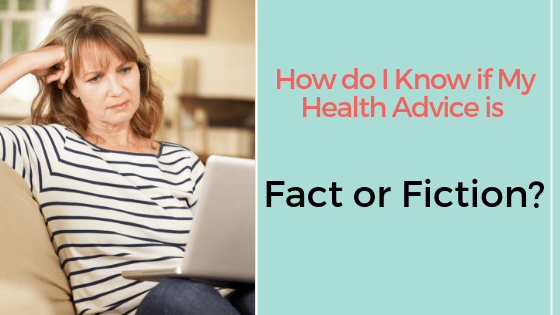Can I let you in on a little secret.. I’ve been immersed in the health industry for over 20 years and working in the fitness industry for almost thirteen, I still find shocking revelations that debunk legitimate health authorities and completely side swipe everything I believe.
I know you’ve gone through this too.
One day a glass of wine is supposedly heart healthy, while the next you’re told it could increase your risk of cancer. Who do you believe?
One recent example that really impacted me was the retraction of fish oil as a healthy supplement.
The American Heart Association had guided health professionals (such as myself) to suggest fish oils for heart health. Yet recently we learned that this advice may no longer be true and fish oil may have no health benefit whatsoever.
This isn’t the first time we’ve been let down by a leading health authority:
What about the “don’t eat saturated fat” era, to the “eat saturated fats if it’s from plant based coconut oils only”. My goodness!
So, when everywhere and anywhere has potentially faulty information, who can you believe? and how can you protect yourself from becoming sick, when your intentions are to live an optimal healthy lifestyle?
I think we can all agree that that health information is constantly changing and it’s changing quickly. New findings give us great insight and the possibility to be healthy, but we definitely have to adapt to new advice quickly and make decisions based on how the new advice affects us directly.
When wondering if you should follow a new piece of health advice, here’s how I separate fact from fiction.
-
Try Anything Once, but if it Doesn’t Feel Good to Your Body, Stop Right Away:
You’d think that sounds pretty obvious, but I can’t tell you how many women continue to eat certain foods because they think it will make them healthy, or get them better weight loss results, but they hate the way the food reacts to their body, or they even hate the way it tastes.
If you:
- Get gas while taking a probiotic, stop taking it
- Feel fuzzy without carbs, eat carbs
- Hate the way cottage cheese tastes, don’t eat it.
When it comes to your body, you are the wisest person you know. The signs your body gives you will guide you towards optimal health.
-
Find Out if Your Advice is Backed by Strong, Long Term Scientific Findings, (Even if it Comes from a Legitimate Health Association)
I completely overlooked this step when following the American Heart Association’s findings to take fish oil. This probably happened because it wasn’t the only big health organization pushing these oils, but I still should have done some heavy research.
The more studies, the more participants in the studies and the longer the studies lasted, the more trustworthy the information may be.
-
Choose Facts Backed by Meta-Analyisis Studies (a study that reviews hundreds or thousands of studies and pools the results)
Studies that pool many different studies on a similar topic and pool the results can give you a bigger picture on the efficacy or the truth behind a certain healthy food, a supplement or a piece of nutrition information.
It finds statistical similarities throughout all studies and increases the possibility that the information is true (or valid).
This type of study is (in my eyes) the most trustworthy type of information out there.
-
Don’t Take Advice Based on Animal Studies
We are not mice, or rats, or any other animal but human.
Animal studies may give us possible insight to how certain foods or supplements may affect us, but it doesn’t mean that as humans we’ll react the same as these animals do.
There have been countless animal studies that have shown certain supplements or nutritional foods were healthy, but later those same findings were seen in the human population.
This may seam overwhelming, and like there’s a lot of work involved to know for sure, but when in doubt, there are really only 2 big points to remember
Listen to your body and as often as possible get your nutrients from food, not from supplements.
Information on supplements continues to change and you may discover that something you take now for health does more damage than good.
After all, it’s better to be safe than sorry!
